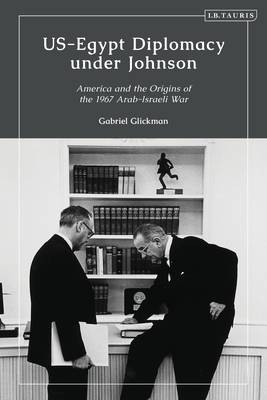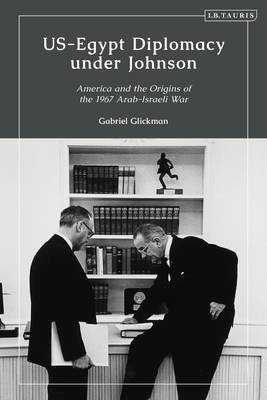
Bedankt voor het vertrouwen het afgelopen jaar! Om jou te bedanken bieden we GRATIS verzending (in België) aan op alles gedurende de hele maand januari.
- Afhalen na 1 uur in een winkel met voorraad
- In januari gratis thuislevering in België
- Ruim aanbod met 7 miljoen producten
Bedankt voor het vertrouwen het afgelopen jaar! Om jou te bedanken bieden we GRATIS verzending (in België) aan op alles gedurende de hele maand januari.
- Afhalen na 1 uur in een winkel met voorraad
- In januari gratis thuislevering in België
- Ruim aanbod met 7 miljoen producten
Zoeken
Us-Egypt Diplomacy Under Johnson
Nasser, Komer, and the Limits of Personal Diplomacy
Gabriel Glickman
Paperback | Engels
€ 69,45
+ 138 punten
Omschrijving
What happens to policies when a president dies in office? Do they get replaced by
the new president, or do advisers carry on with the status quo? In November 1963,
these were important questions for a Kennedy-turned-Johnson administration.
Komer, who had made it his personal mission to have the United States form better
relations with Egypt's Gamal Abdel Nasser after diplomatic relations were nearly
severed during the Eisenhower years. While Kennedy saw the benefit of having good,
personal relations with the most influential leader in the Middle East-believing
that it was the key to preventing a new front in the global Cold War-Johnson
did not share his predecessor's enthusiasm for influencing Nasser with aid. In US-Egypt Diplomacy under Johnson, Glickman brings to light the diplomatic
efforts of Komer, a masterful strategist at navigating the bureaucratic
process. Appealing to scholars of Middle Eastern history and US foreign
policy, the book reveals a new perspective on the path to a war that was
to change the face of the Middle East, and provides an important "applied
history" case study for policymakers on the limits of personal diplomacy.
Specificaties
Betrokkenen
- Auteur(s):
- Uitgeverij:
Inhoud
- Aantal bladzijden:
- 296
- Taal:
- Engels
Eigenschappen
- Productcode (EAN):
- 9780755639946
- Verschijningsdatum:
- 25/08/2022
- Uitvoering:
- Paperback
- Formaat:
- Trade paperback (VS)
- Afmetingen:
- 156 mm x 234 mm
- Gewicht:
- 412 g

Alleen bij Standaard Boekhandel
+ 138 punten op je klantenkaart van Standaard Boekhandel
Beoordelingen
We publiceren alleen reviews die voldoen aan de voorwaarden voor reviews. Bekijk onze voorwaarden voor reviews.









